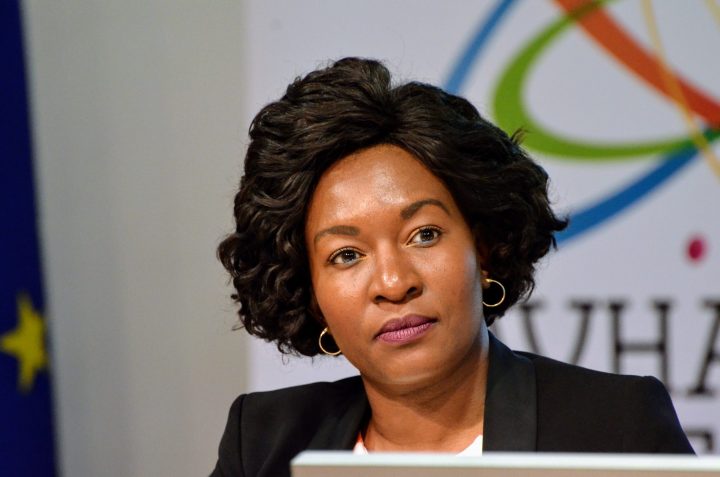Nicole Ndongala, migrant to Spain, native of the Democratic Republic of Congo, participated in the European Humanist Forum, Madrid, in her role as the director of the Karibu Association. Nicole participated in the opening session and in the working area on Women for Nonviolence.
In her intervention, she underlined the importance of considering immigrants, not as a statistics, but rather as human beings with a history and frequently difficult and tragic lives. And this is “what unites us”, according to Nicole: to give value to humanity, something she returns to in this interview.
She also makes it clear that the priority for immigrants is to get papers, to legalise their situation, in order to be able to move and act without limitations.
(The video below is available with English subtitles and the translated transcripction is below.)
We are here with Nicole Ndongala, one of the participants in the first panel here at the European Humanist Forum in Madrid. Nicole, I wanted to ask you, first, what is your work with respect to the issue of immigration here in Spain.
Good afternoon. I am the director of the Karibú Association. We work for the integration of Sub-Saharan Africans here in Spain.
The theme of this forum is “what unites us towards the Universal Human Nation” and precisely as a militant, as a migrant rights activist, what does that have to do with the Forum? Tell us a little.
It is very important because in the end what unites us all is humanity. Therefore, the Humanist Forum, I believe, will give a very important impact so that governments see it as an example because it has mobilised a lot of people who think about the same cause, which is the cause of humanity, because a person who doesn’t have a dignified way to live humanly doesn’t believe themselves a superior person, but rather as inferior.
Therefore, I believe that this forum is very important to make what people feel towards human beings a little more visible.
And, what are the main difficulties that, at least the immigrants from Sub-Saharan Africa, experience here in Spain, here in the European Union?
The difficulty we have here, first is the issue of papers because a person who doesn’t have papers, has no access to many things.
Therefore this is someone who is very limited when trying to do something, because they can’t do any training, because sometimes there is training available that asks for documentation in order to be able to access it. So, it’s a permanent barrier.
And the issue also of not wanting to accept immigrants as such. That implies that integration is very slow.
Many thanks.










